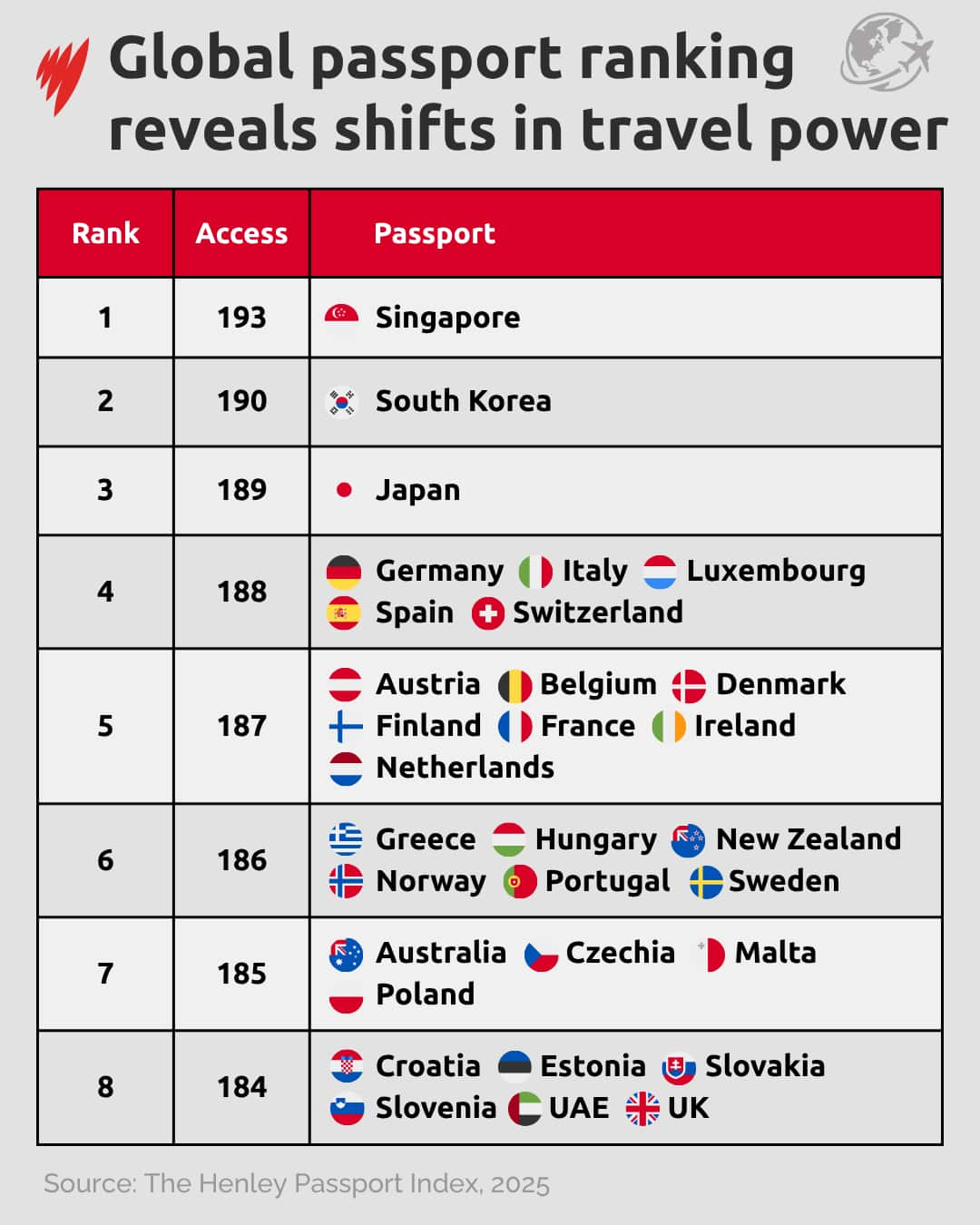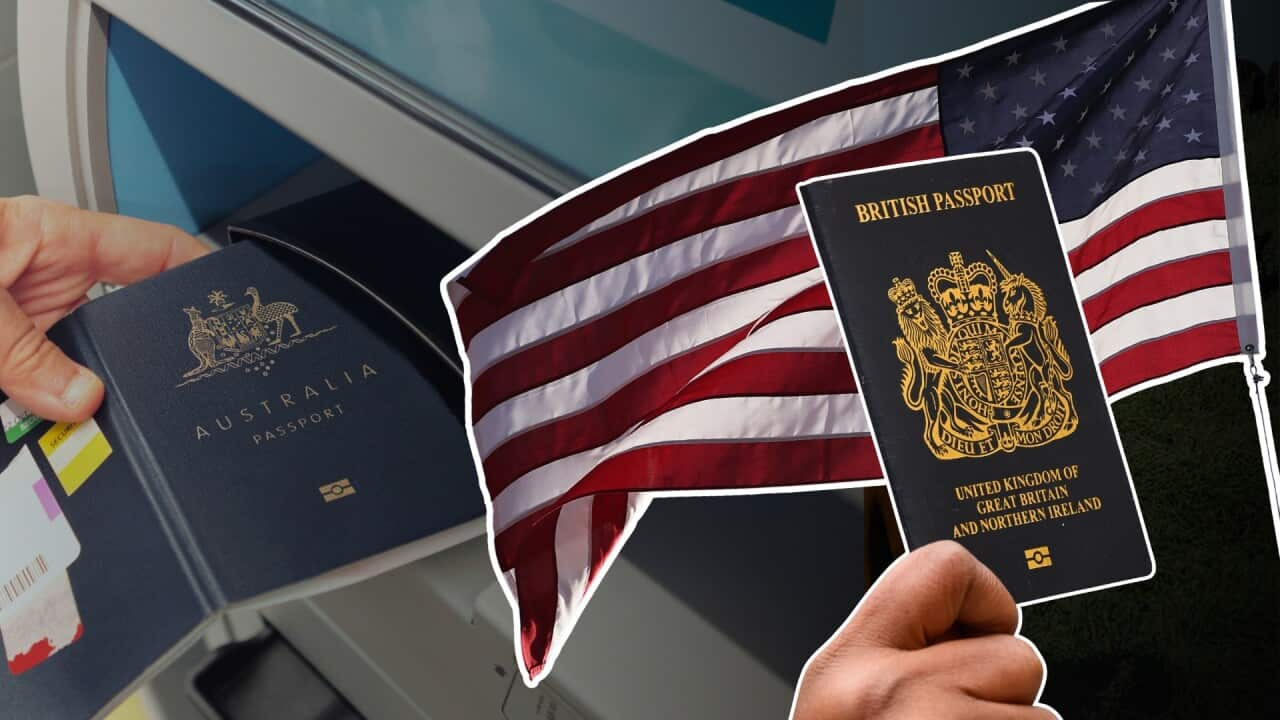Australia's passport remains among the world's most powerful, according to new rankings, while the United States has slipped out of the top ten for the first time in 20 years.
The Henley Passport Index is a quarterly review that ranks the world's passports on the number of countries their holders can visit without a visa.
The latest update shows Australia's passport has held steady in the top 10, remaining tied at seventh place alongside Czechia, Malta and Poland.
Permitting access to 185 countries without a prior visa, Australia's passport has ranked seventh on the index since it slipped from sixth place earlier this year.
US passport falls from top 10
The index, monitored by British consultancy firm Henley & Partners, has tracked some big shifts in passport power over the course of just a few months.
Since its last report in July, the United Kingdom has dropped from sixth to eighth place, while the US has fallen out of the top 10 completely.
It's a marked fall for the US, which was once ranked at number one back in 2014, and has now dropped to 12th place alongside Malaysia.
Both countries' passports permit entry to 180 countries without a visa.
It's the first time in the index's 20-year history that the US has fallen out of the top 10.

Henley & Partners chairman Christian Kaelin, the creator of the Henley Passport Index, said while the changes may seem small, the consequences could be substantial.
"The declining strength of the US passport over the past decade is more than just a reshuffle in rankings," he said in a statement.
"It signals a fundamental shift in global mobility and soft power dynamics. Nations that embrace openness and cooperation are surging ahead, while those resting on past privilege are being left behind."
While the US can access the majority of countries around the world without a visa, it only permits visa-free travel for those from 46 other nations — the widest gap in visa reciprocity, second only to Australia.
This lack of reciprocity has contributed to the US passport's descent on the index. In April, US passport holders lost visa-free access to Brazil and the country was excluded from visa-free access roll-outs for Vietnam and China.
The UK has also fallen in ranking since July, from sixth place on the index to eighth, below Australia. Like the US, the drop follows a steady downward trajectory for the UK passport — now in its lowest-ever position — which was ranked number one a decade ago.
What do the changes tell us?
The passport ranking is unlikely to affect travel for most Australians, but the shifts between countries over time indicate shifts in global soft power dynamics.
Singapore has topped the list for the third consecutive year, with passport holders able to travel visa-free to 193 countries.
Among them are China, Ghana, Indonesia, Vietnam, Laos, Mozambique and Benin - all countries that require Australian passport holders to obtain a visa.
Afghanistan was once again at the bottom of the list, with passport holders granted access to just 24 countries without a visa.
The index is based on figures from the International Air Transport Association, a global database of travel information. Countries' rankings can shift dramatically, with the loss of visa access to just one country causing a significant drop in the index.
For the latest from SBS News, download our app and subscribe to our newsletter.

